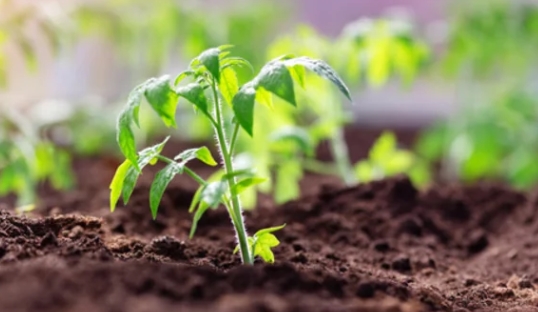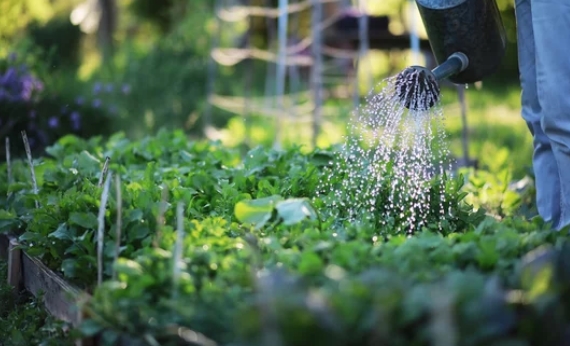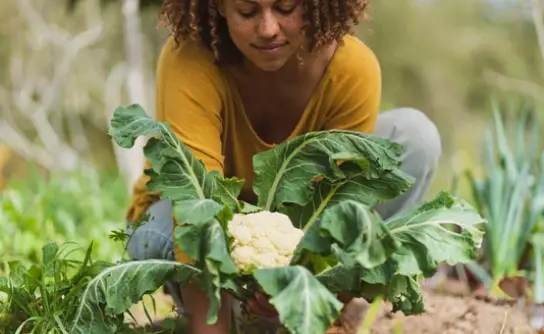I want to share with you some of my gardening tips and tricks that I have learned over the years.
I will start by talking about how to get started and then we will go into what kind of vegetables you should grow.
Some people are drawn to gardening because they enjoy the process of planting and nurturing plants.
Others may garden for the satisfaction of a bountiful harvest.
Whatever your motivation, gardening can be a satisfying hobby or even a rewarding profession.
In this article, we will give you some tips on how to save time in your vegetable gardening tips.
If you follow these tips, then you will have more time to spend on other activities that you enjoy more than gardening.
How to Save Time with Vegetable Gardening?

The first tip is to plan ahead.
Planning ahead can help you avoid wasting time and effort later on by providing the information necessary for making decisions about what and when to plant vegetables.
You should also plan out your garden so that it is easy for you to know where each crop will be planted and what type of soil it
Why You Should Start a Vegetable Garden
The first thing you need to know is how to start a vegetable garden.
This can be done in many different ways, but it is important to know what kind of space you have available.
This will help you determine whether or not a vegetable garden is suitable for your lifestyle.
For example, if you live in an apartment, it may be difficult for you to grow a vegetable garden because there are only so many windowsills available for planting plants.
If this is the case, I would recommend starting with container gardening indoors or growing your own herbs on your windowsill instead.
How to start a vegetable garden?
- Choose a plot of ground that is level and weed-free. Remember, the soil needs oxygen for plant development.
- Remove any shrubs or bushes from the area you are going to use for your garden. This will allow more sunlight in during the day and less at night, which will improve growth and photosynthesis.
- If you are unsure what types of vegetables to grow, refer to the University of Illinois Extension website for a list of plants that grow well in the area.
- Subdivide your garden into three separate beds. Space them at least 4-5 feet apart and 6-8 feet from each other for proper drainage and sunlight exposure throughout the day.
- In each bed, create a leafy green border. This will allow sunlight to pass through and help the plants grow bigger.
- Pull your weeds when they are small by hand or gently with a little muscle power (no need for chemicals or digging). If you have pets that dig in your garden, it is highly recommended to place a 4-inch layer of mulch around your plants so that animals cannot dig up your garden.
How to Choose the Best Vegetables for Your Garden

We all know that vegetables are an important part of our diet.
They provide us with a variety of vitamins and nutrients.
However, what vegetables should we plant in our garden?
It is not always easy to know which vegetables will grow well in your garden.
There are many factors that you should consider when choosing the best vegetables for your vegetable garden.
You need to think about the climate, soil type, and amount of sun your plants will get and also, how much time you want to spend in the garden.
There are many different types of vegetables that can be grown in a vegetable garden so it is essential to find the ones that work best for you and your lifestyle.
Do you have a raised garden bed? If so, I would recommend planting one large crop of vegetables.
This allows the ground to rest between plants and helps reduce weed problems.
You can also plant directly in your garden rather than in containers if you want to save yourself time and hassle.
I have a raised vegetable bed, but still prefer to set plants in containers.
I find it hard to get the soil and compost to pack down to the bottom of a container without compacting too much. , and I’m impatient to get them in the ground.
I’ll usually set up a flat of pots, that is, all the plants will be in one large pot (in this case six) and three smaller ones.
I then take these six large pots, place them on top of each other, and dig a trench around all of them so that they are completely covered.
I then place the three smaller pots in the trench and fill in around them with more soil.
How to Plant Your Vegetables in the Right Order
Vegetables are planted in the correct order and by season to maximize the harvest and give you a continuous supply of fresh vegetables.
For example, The Spring Vegetables: Asparagus, peas, spinach, broccoli, and Brussels sprouts are usually planted in the spring.
Peas are also spring vegetables as well because they are planted when the ground thaws out from winter’s frost.
Broccoli is also a popular spring vegetable that can be planted in March to get a long-lasting harvest.
Brussels sprouts grow best in cool weather, but they can be planted in the spring as well.
They have a very hardy root system that is not affected by frosts.
However, they are hard to transplant. So, you should buy them from a nursery and plant them in the ground or in a pot.
The roots of the daffodil plant can reach 3-4 feet deep in search of water and nutrients.
They need good drainage, keeping them away from woody plants or areas with high humidity.
They are shade tolerant, but they need good drainage. 5-5-5Native plants are best suited for a less crowded landscape and gardens with soil that drains well.
The Garden mix should be made up of native plants such as ferns, sedges, and cattails, which can thrive in moist soil that doesn’t stay wet for long periods of time.
Native plants require less fertilization than non-native plants, so they are healthier.
How to Care for Your Vegetables Properly
One of the most important things to know about caring for vegetables is that they need to be watered regularly.
You should water them every day, or at least twice a week.
You should also make sure that you are watering them deeply so that the water reaches their roots.
You should also make sure that the soil is loose and warmed up before you plant vegetables.
The sun does a lot of work in this area, so you should place the vegetables near some windows.
If there are no windows, use artificial light.
You can also grow your own garden.
The vegetables need to be watered with a deep soaking solution.
You should make sure the water drains out of these areas well, so don’t use clay or gravel.
The vegetables may need to be pre-hydrated with a liquid solution before planting.
You can do this by soaking them in a bucket of water for a few hours or overnight.
Vegetables need to be fertilized regularly as well.
This can be done by adding organic fertilizer to the soil in your garden every three months or by using a fruit-based fertilizer, like scraps of citrus peel.
The Benefits of Starting a Vegetable Garden and How it Can Save You Time
A vegetable garden is a great way to save time, and money and provide healthy foods for your family.
Vegetable gardens can be started in a variety of places like a backyard, patio, or even on the roof.
They can be very rewarding, especially if you have children that are eager to help out with planting and harvesting the vegetables.
This way they will learn about where food comes from and how it is grown.
There are many benefits to starting your own vegetable garden.
It will save you money by providing fresh vegetables at home and reducing your grocery bill each week.
Also, it helps reduce food waste because you don’t have to worry about what will happen if you forget that an item is going bad soon and throw it away before it’s too late.
Many experts recommend starting a vegetable garden in your backyard because it’s likely that you’ll be able to grow enough vegetables to feed both your family and the whole neighborhood.
If you don’t have space for a garden, start one on a balcony or porch.
No matter which way you decide to go about it, just remember that gardening requires effort and time.
The most important thing to remember is that you really don’t need to buy organic food.
If you’re from a culture where organic produce is the norm, this may be an issue for you, but if not then it’s no big deal.
Buying organic food can add up and sometimes cost a lot more than what your garden can produce on its own,
Organic produce is not always better than conventionally grown plants.
However, you can benefit from choosing to eat more organic because of the chemicals and pesticides that conventional farming methods use.




